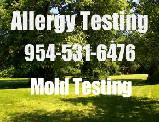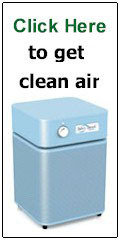Got Mold?Call (954) 531-6476 Frequently Asked Questions About Mold
Can mold be a problem in my home? Mold in my home, should I be concerned? Can mold make me and my family sick? What are symptoms of mold exposure? Who is most at risk for health problems from mold exposure? Are some molds more harmful than others? How do I know if I have a mold problem? Mold Testing, should I have my home tested?
Most molds do not harm healthy
people. But people who have allergies or asthma may be more sensitive to molds. Sensitive people may experience
skin rash, running nose, eye irritation, cough, nasal congestion, aggravation of asthma or difficulty breathing.
People with an immune suppression or underlying lung disease, may be at increased risk for infections from
molds. You know you have mold when you smell the
"musty" odor or see small black or white specks along your damp bathroom or basement walls. Some mold is hidden
growing behind wall coverings or ceiling tiles. Even dry, dead mold can cause health problems, so always take
precautions when you suspect mold. When should I sample for mold? You don't need to sample for mold because in most cases you can see or smell mold. Even a clean, dry house will have some mold spores, but not enough to cause health problems. If you smell mold it may be hidden behind wallpaper, in the walls or ceiling or under the carpet. If you suspect you have hidden mold be very careful when you investigate, protect yourself from exposure in the same manner as you would for a clean-up. See chart below:
Copyright © 2003 Safe Homes Environmental Consultants All rights reserved. |




